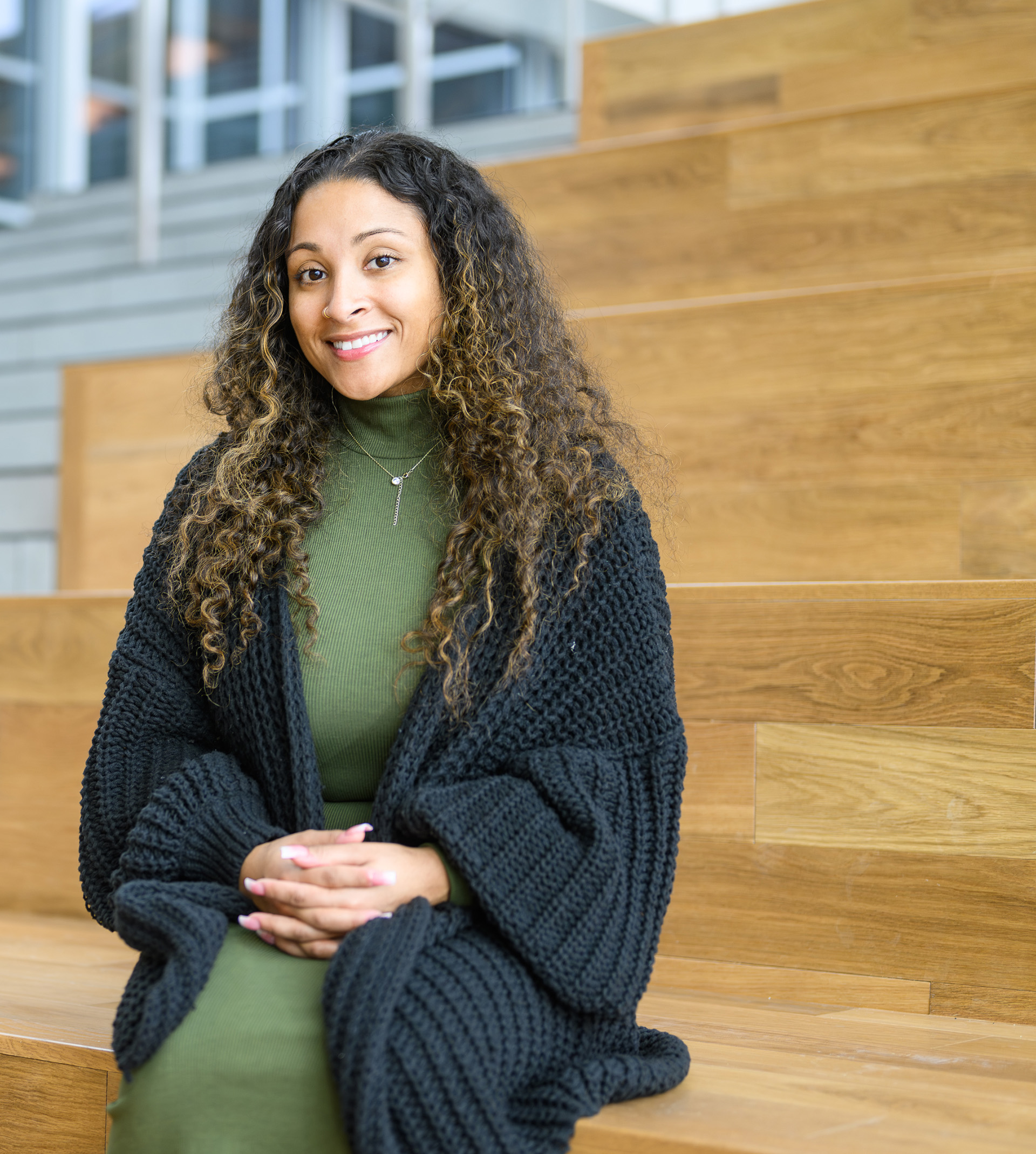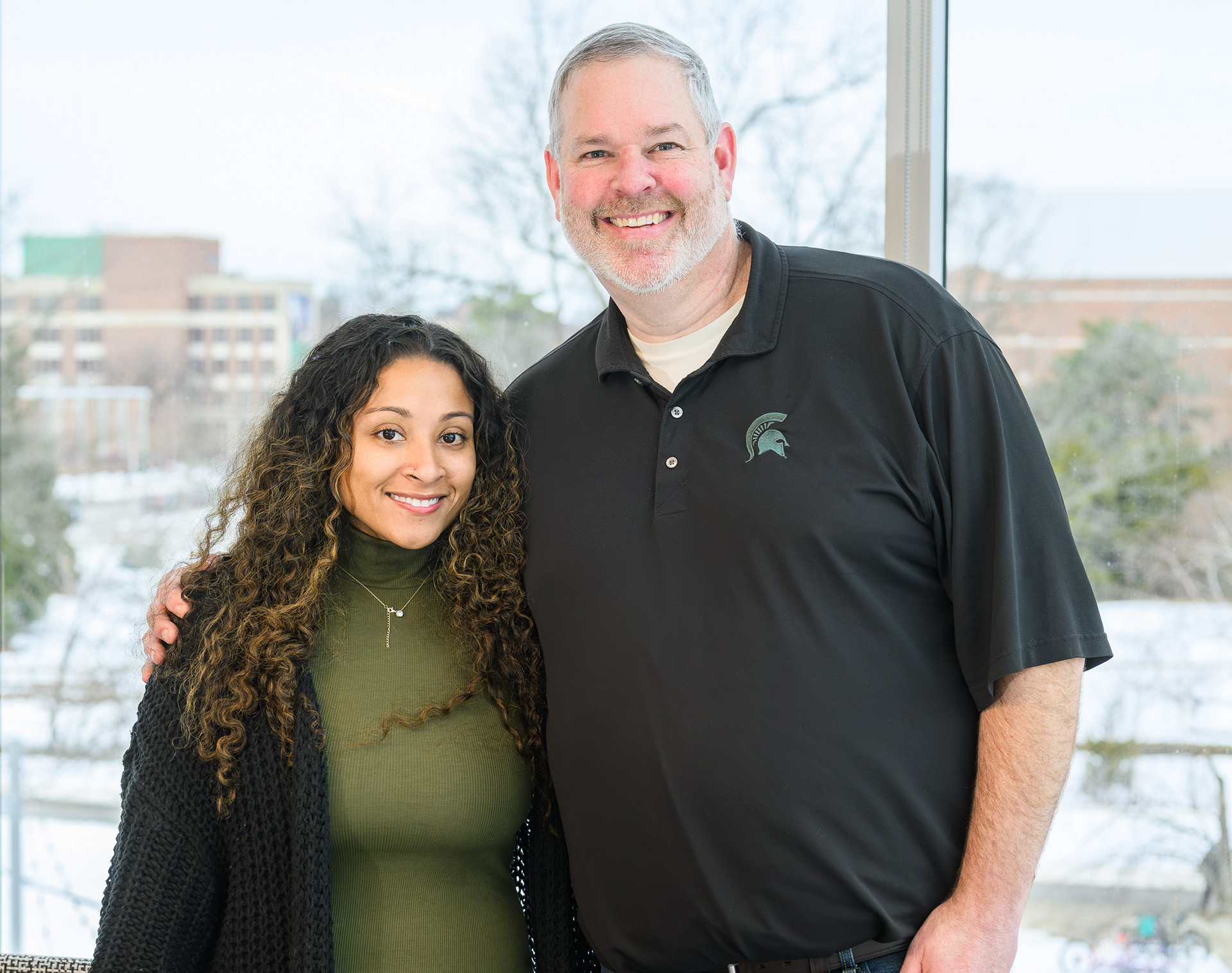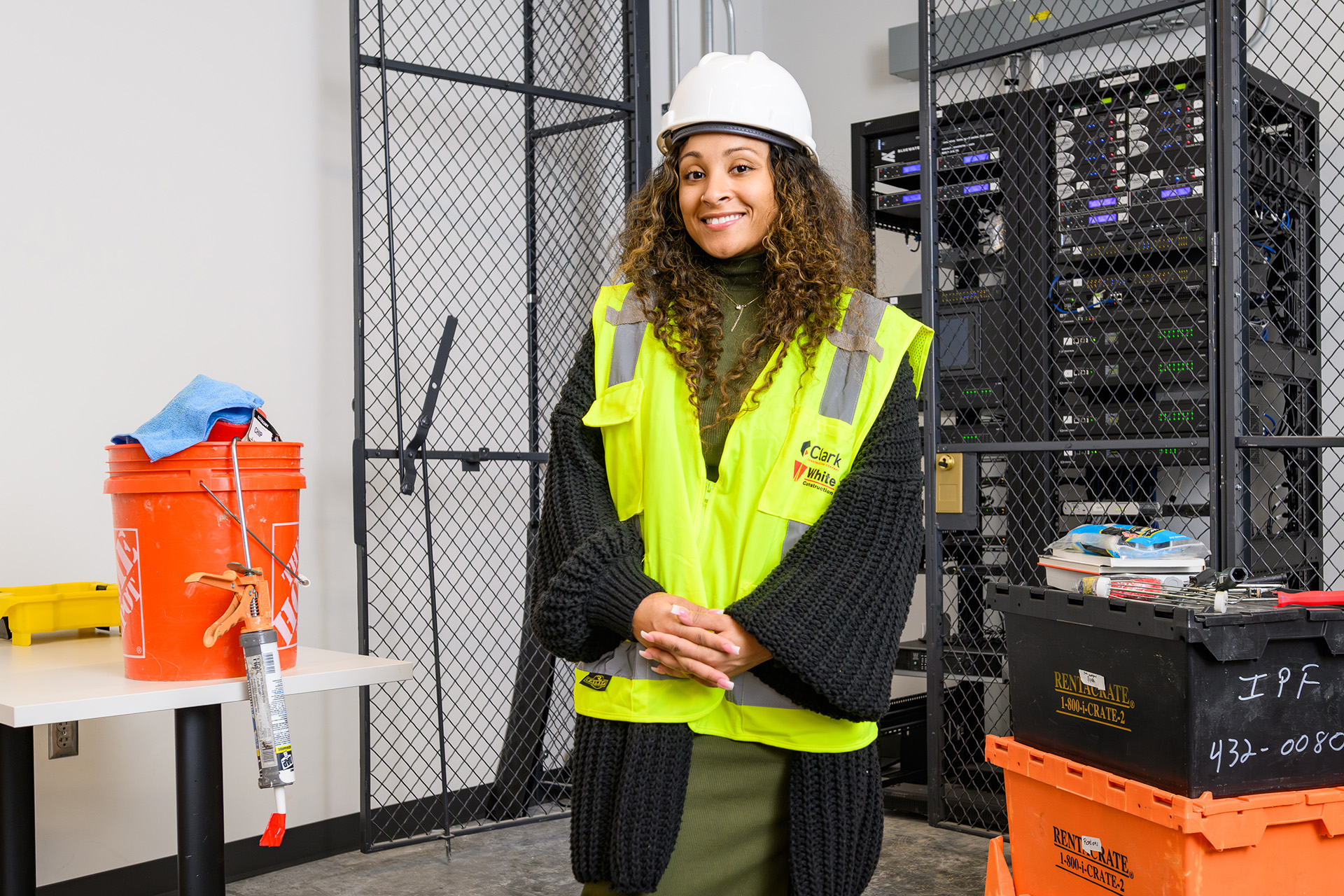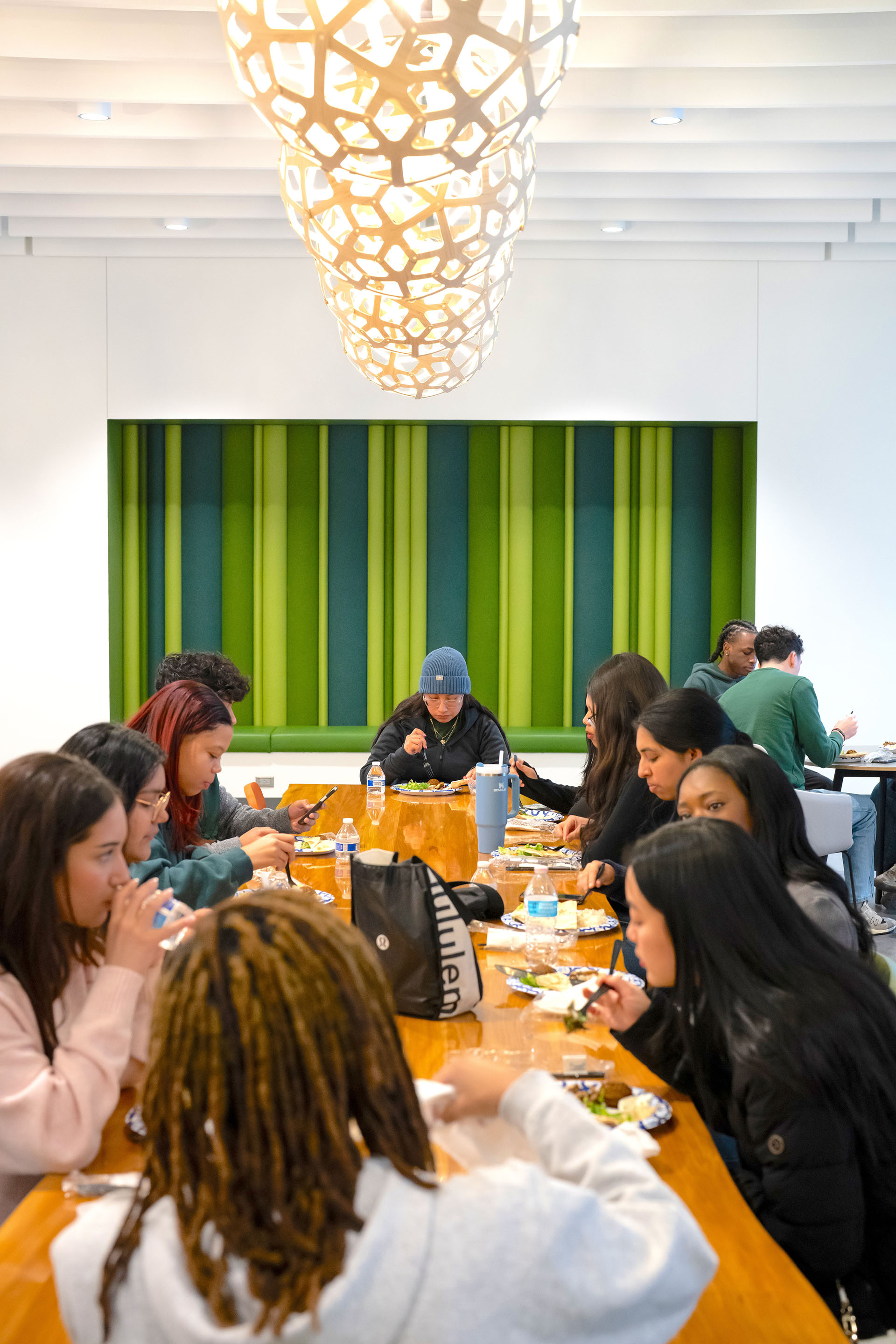In a field where women and women of color are still underrepresented, Tiana Carter is forging her own path, one blueprint at a time. As an assistant project manager in Infrastructure Planning and Facilities, or IPF, at Michigan State, Carter is carving out a space for women of color in a field where representation is still scarce. Her journey now includes being a part of the team that built the first freestanding multicultural center at Michigan State University.
Carter's career at MSU began 12 years ago, beginning as an administrative assistant in IPF and then moving into an operations coordinator role in 2015. While earning a degree in neuroscience, Carter worked her way up to become an assistant project manager for the department.
In her vital role as a project manager, Carter oversees the scope, budget and timeline of various university projects. She plays a central role in coordinating stakeholder communications, providing design and engineering oversight while aligning organizational strategies. Carter also manages vendor relationships, material procurement and drives process efficiency, making her a key player in ensuring the success of capital projects.
“Managing multimillion-dollar capital projects is all about strategic collaboration and paying attention to the details. With every project, I make sure it aligns with the university’s larger goals, while keeping the scope, budget and timeline on track — without ever sacrificing quality,” says Carter. “For me, it’s about striking the right balance between efficiency and innovation to create lasting value. Ultimately, my role is to be a partner that stakeholders can rely on, driving progress while upholding the highest standards at every step.”
Construction of the new Multicultural Center, or MCC, building cost approximately $38 million and was completed within budget and on time.
Multicultural Center project executive committee
- Dan Bollman, Vice President for Strategic Infrastructure Planning and Facilities
- Vennie Gore, Special Advisor to the President
- Barbara Kranz, Assistant Provost, Institutional Space Planning and Management
Multicultural Center project management team
- Brian Mullen, Co-Project Manager, Infrastructure Planning and Facilities
- Lisa Sudia, Co-Project Manager, Institutional Space Planning and Management
- Tiana Carter, Assistant Project Manager, Infrastructure Planning and Facilities
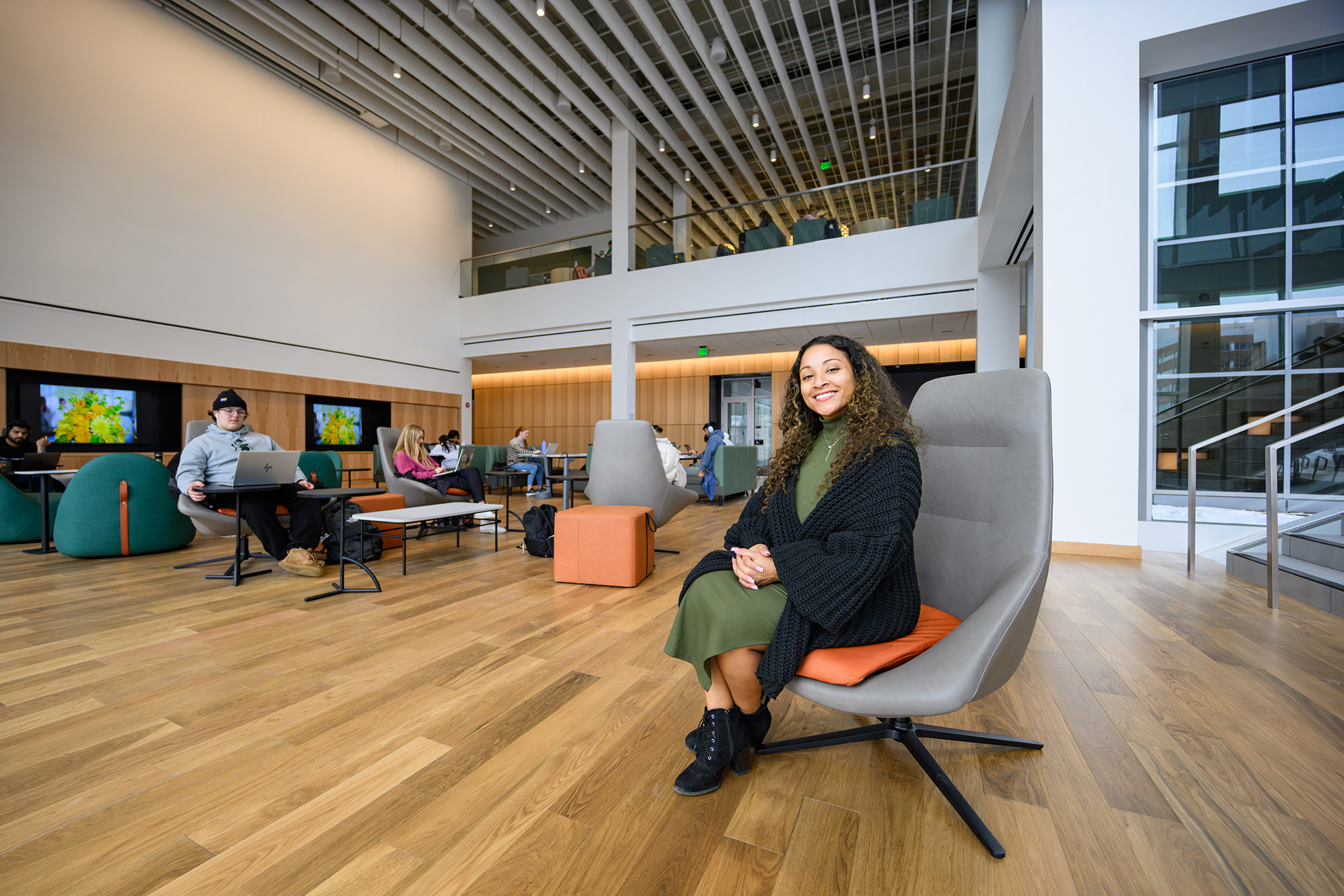
Leading construction best practices
Carter has been a part of the process to construct the university’s first freestanding multicultural center since 2019. She was soon tasked with leading the new building’s documentation efforts, coordinating communications and working directly with student stakeholders. The MCC design and build process marked the most student engagement of any project. Students provided input for the design and were involved in every aspect of the process.
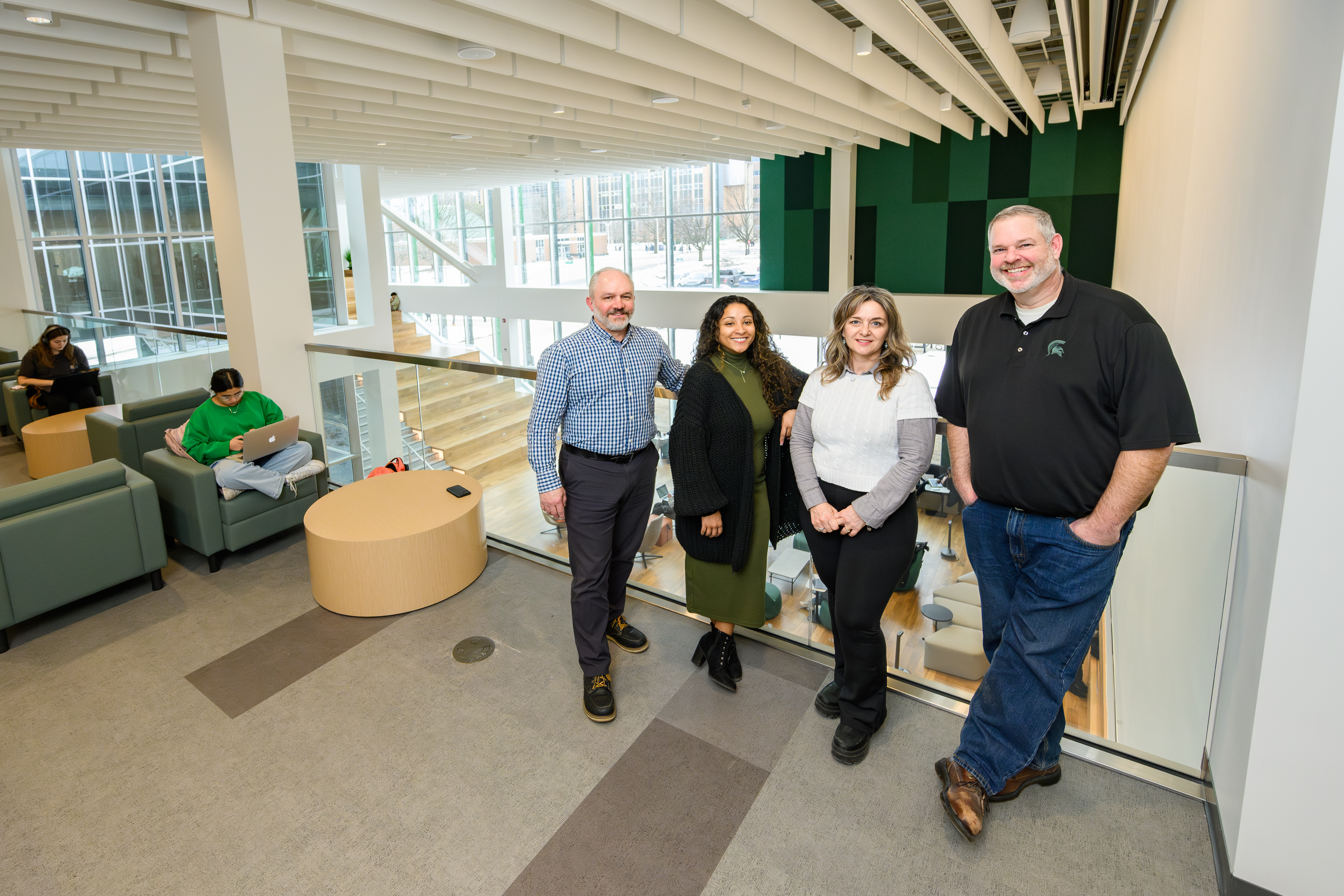
Project team members, from left to right, Dave Wilbur, Tiana Carter, Christine Lockwood and Brian Mullen. Photo by Dane Robison.
Many people are aware that the team at IPF manages MSU’s physical environment, but IPF also plays a critical role in overseeing new university construction projects from start to finish. A notable example of this is the MCC project, where IPF not only navigated the complexities of construction but helped shape a space that fosters inclusivity and community. By overseeing both day-to-day operations and large-scale development projects like the MCC, IPF has been key in shaping the university’s campus and supporting its mission of diversity and engagement. Another crucial partner in the project was Institutional Space Planning and Management, or ISPM, whose expertise includes academic space programming and ensures spaces adhere to the university’s policies and utilization standards. ISPM worked with IPF to conduct feasibility studies, coordinate design, manage budgets and supervise construction.
“Tiana has been an essential part to this project from day one,” says Brian Mullen, senior project manager for IPF. “She’s been the bridge between student groups, our campus partners and the IPF team. Whether it was facilitating meetings with students to ensure their voices were heard or documenting and keeping communication flowing across campus, Tiana has been the backbone of this project. Her attention to detail and collaborative approach have ensured that we have stayed on track and on time but also that the MCC truly serves the entire university community.”
Building strong community connections
It was Carter’s experience as a student that made her such an invaluable resource for the project — she keenly understood student needs and experiences. To get feedback from a broad range of students, Carter crisscrossed campus, providing many ways for students to be a part of the design process. From hosting virtual sessions to traveling to events like Pride Prom carrying poster boards of images, she built strong connections and helped communicate an intricate process.
“People don’t always realize what all goes into a building project of this size,” says Carter. “It’s not just flooring and wall colors, it’s the piping behind the walls, its fixtures, accessibility needs — everything needs to be chosen, and we wanted to make sure that everyone’s voice was heard.” Between meetings, Carter kept track of everything in large “decision logs” to communicate updates to not just the stakeholder committee, but to students, alumni and the Board of Trustees.
Panoramic time-lapse video of the Multicultural Center construction site from spring 2023 to January 2025. Footage courtesy of OxBlue
MSU’s IPF and ISPM teams worked tirelessly to bring the Multicultural Center to life. From navigating complex logistics to ensuring that every detail of the project aligned with the needs and input of the students, the team’s dedication was paramount. Their collaborative efforts have been essential in helping bring this vision to fruition.
Throughout the project, Carter played a pivotal role in coordinating over 60 student ambassadors in 46 engagement sessions with SmithGroup throughout the design phase. She also supported both Clark Construction Company and White Construction, who teamed together to form Clark-White Joint Venture for this project. Carter managed project communication and facilitated tours for students, university leaders and other campus stakeholders, ensuring seamless collaboration and engagement at every step.
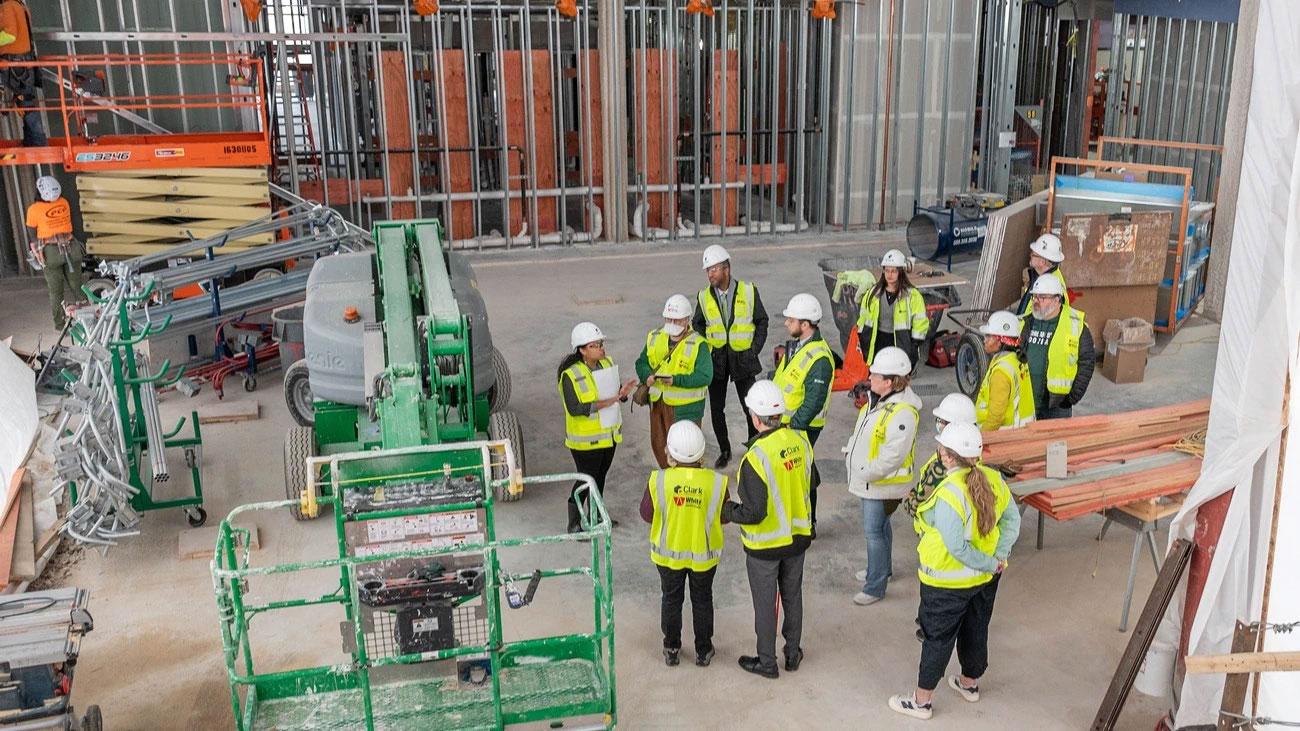
Tiana Carter leads a tour of the Multicultural Center in early February 2024. Photo by Derrick L. Turner
Breaking the glass ceiling
Another key aspect that made the project unique was the focus on diversity within the construction process. “We didn’t want a construction company who was just checking the box. We were looking for someone who was not only a talented builder, but someone who also understood the significance this space would mean to the campus community. It was exciting to see this effort to create opportunities in an industry that has been at times slow to change.”
"Every time I show up to a job, I've had to prove myself," says Carter. "There have been times where I've called a vendor to speak about a job and they've ignored my calls, reaching out to a male colleague, even though I'm the lead on the project."
Construction and facilities crews can be a hard industry to break into and women may not be stereotypically associated with construction projects.
These barriers are why programs like Women in Skilled Trades, an IPF-supported program and recipient of the 2025 Excellence in Diversity Equity and Inclusion Awards, are so important. “These types of programs are so needed because representation matters,” says Carter. “They say to women and marginalized communities that there is space for you in this industry and that we need you and your skills and unique viewpoints.”
Careful consideration went into selecting local construction companies to reflect the values of the Multicultural Center project. White Construction is one of the largest minority-owned contractors in Michigan.
The Multicultural Center project was special to Carter for another reason — it was a family affair. Her cousin, Havien Gibson, a first-generation student studying city/urban community and regional planning at MSU, was selected as an intern as part of a Clark White joint venture to work on the MCC project. After his internship, Gibson was offered full-time employment with Clark Construction.
“I’ve always been drawn to the idea of building something that will not only last but also have a lasting emotional impact on people,” Gibson explains. “Even though I graduated before the MCC was completed, I’m proud to have contributed to a project that will help future students feel like they truly belong on campus.”
Since the start of the spring semester, students have flooded the space, replacing the sounds of construction with the sounds of gathering and connection. Recently, Carter attended “Cultural Cuisine and Connections” a multicultural food event hosted by the Office of Multicultural Enrichment and Advocacy. “It was an amazing event, and I felt honored to be included but I was even more excited to see the results of decades of work and activism,” says Carter. “This is what we worked all of these years for, and it was so great to see students loving and using these spaces.”
Carter is also an active member of the campus community, serving as co-director of the MSU Women of Color Community, and has developed programs and networking opportunities to support the university’s goals of creating an inclusive environment by retaining diverse talent.
“You need to see people who look like you in leadership roles to know it’s possible,” says Carter. “I want to be that person for someone else, the one who shows them that no dream is too big — and no field is off-limits.”
Cover image by Justin Maconochie. Story photos by Dane Robison
